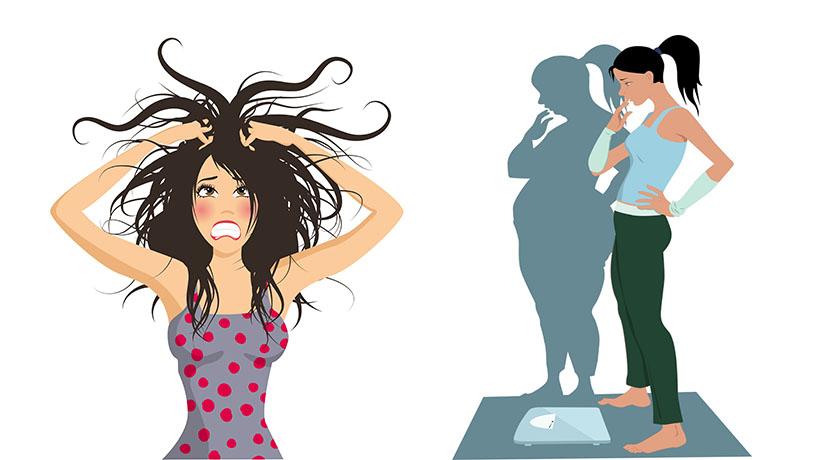Life can be stressful for so many reasons, and people choose to handle stress in different ways. While some turn to exercise as a stress reliever, “stress eating” is an even more common, temporary mood booster because it is easier and less time-consuming.
It’s hard to mitigate the effects of stress, and new research suggests that women in particular who experience high levels of prolonged stress from their jobs are more likely to gain weight. Since women don’t need yet another stress added to the pressures of maintaining a balanced work and home life, we’ve sought out some helpful info to understand how stress affects women, and some methods of solving it.
The study
In a study conducted by the University of Gothenburg in Sweden, researchers looked at the Västerbotten Intervention Program, a Swedish population of 3,872 working participants. Both women and men in the program were investigated on three occasions over a 20-year period with respect to such variables as body weight and demands and control at work (they were followed either from age 30 to 50 or 40 to 60). Both female and male participants with a low degree of control in their work more frequently had a weight gain of 10 percent or more, in the course of the study.
By contrast, long term exposure to high job demands (defined by work pace, psychological pressures, whether there was enough time for their duties) only affected the women. In over half of the women in the study who had been subjected to high demands, a major increase in weight took place over the 20 years. This is believed to be a result of job demands and the greater responsibility for the home that women often assume.
How stress relates to weight gain
According to WebMD, people crave unhealthy “comfort food” in response to a stressful situation. This is due to a spike in cortisol production which can help cause higher insulin levels, which in turn makes your blood sugar drop. Stress, or the blood sugar spike and then drop, can also promote extra storage around the stomach.
How to relieve stress
According to the study, while men ostensibly may have more time to relieve stress after work by exercising or practicing meditation, many women may still have “another shift” to work by shouldering the responsibilities of home life with no time to de-stress.
But this doesn’t have to be the case. Women have many options to both relieve stress and effectively reduce weight, including:
- Exercise: Decrease cortisol and increase mood-boosting chemicals.
- Sleep: Limit strenuous exercise and screen time with your devices before bed to get quality rest that will stabilize appetite hormones like leptin.
- Mindfulness: Increasing mindfulness will curb cravings and improve mood.
- Nutrition: Eating properly by supporting the adrenal glands and hormones with key nutrients like vitamin B5, magnesium, and vitamin C will regulate blood sugar levels.
Sources:
https://8fit.com/lifestyle/how-to-prevent-stress-and-weight-gain/
https://www.womenworking.com/6-serious-health-problems-caused-by-too-much-stress/
https://www.timesnownews.com/health/article/high-job-stress-can-lead-to-weight-gain-in-women-study/354742
https://www.gu.se/english/about_the_university/news-calendar/News_detail/?languageId=100001&contentId=1607279&disableRedirect=true&returnUrl=http%3A%2F%2Fwww.gu.se%2Fomuniversitetet%2Faktuellt%2Fnyheter%2Fdetalj%2F%2Fkvinnor-okar-i-vikt-nar-kraven-pa-jobbet-ar-hoga.cid1607279



